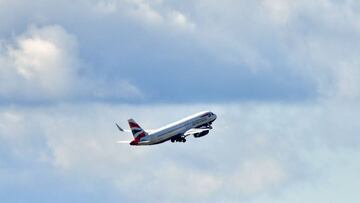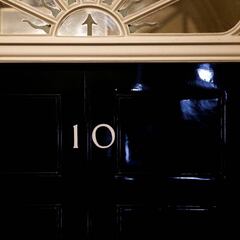Covid-19: UK uses EU mechanism to return stranded Britons
The UK government appears to have changed its mind on the matter of EU support, having previously declined the option to join a medical equipment procurement project.


With flights cancelled and travel restrictions in place to help limit the spread of the coronavirus, a report in the Financial Times has revealed that the UK government has quietly made use of an EU scheme to help repatriate Britons stranded abroad.
Over 1,000 Britons repatriated in February and March
The EU Civil Protection Mechanism was designed to help deal with continent-wide disasters and has provided 75% of the cost of the repatriating flights for EU member states. Using these measures, the UK government organised six such flights in February and March of this year to return over 1,000 Britons to the country.
The report includes a statement from a UK official who said it was “standard practice to use the [mechanism] to recover costs in these situations”, and that Britain “remains a member of and contributor to” the scheme during the Brexit transition period.
“If they can do it quietly, they will”: UK turns to Brussels support for repatriation flights, as pandemic focuses attention on unsung yet potentially vital EU arrangements that the UK faces important choices on whether to join. https://t.co/UcOLmb1fT3 via @financialtimes
— Michael Peel (@Mikepeeljourno) April 6, 2020
Use of mechanism contrasts with snub of EU medical equipment scheme
The decision to use the scheme is a stark contrast to the government’s refusal to get involved in an EU-led project to help procure medical equipment. The EU had said that the UK could take part in the project, which would see member states make a bulk order of items including personal protective equipment (PPE) and ventilators, both of which are in short supply across the NHS.
In a statement issued two weeks ago, Downing Street confirmed that the UK had declined because “we are no longer members of the EU”. Instead, it said the government would be “conducting our own work on ventilators”.
That decision drew criticism from some who accused the government of putting their Brexit promises before public interest. Liberal Democrat MP Layla Moran said the government were guilty of prioritising “Brexit over breathing”.
After receiving a considerable backlash, a spokesperson for the UK government has since contradicted their earlier statement and claimed that Britain did not enlist to use the scheme due to a “communication problem”.
However, that claim that has been refuted by the European Commission, who stated that UK representatives were present at meetings where the topic was discussed and “had the opportunity to signal their interest to participate in any joint procurements.”
UK firm Dyson hired to produce 10,000 ventilators
For now, the UK government has enlisted the help of British vacuum cleaner manufacturers Dyson, who will look to produce 10,000 ventilators from their UK base in Wiltshire.
The change in government message and use of the Civil Protection Mechanism suggests that further EU-cooperation may well be necessary to deal with Covid-19. Despite having left the EU in January, the Brexit transition agreement allows the UK to access many EU resources and schemes until December this year.
Related stories
It is believed that the prospect of continuing such an arrangement has not yet been raised by the UK’s negotiators. However, with international support likely to become increasingly vital to help combat the outbreak, the UK may soon discover whether or not such measures are compatible with Boris Johnson’s Brexit plan.
